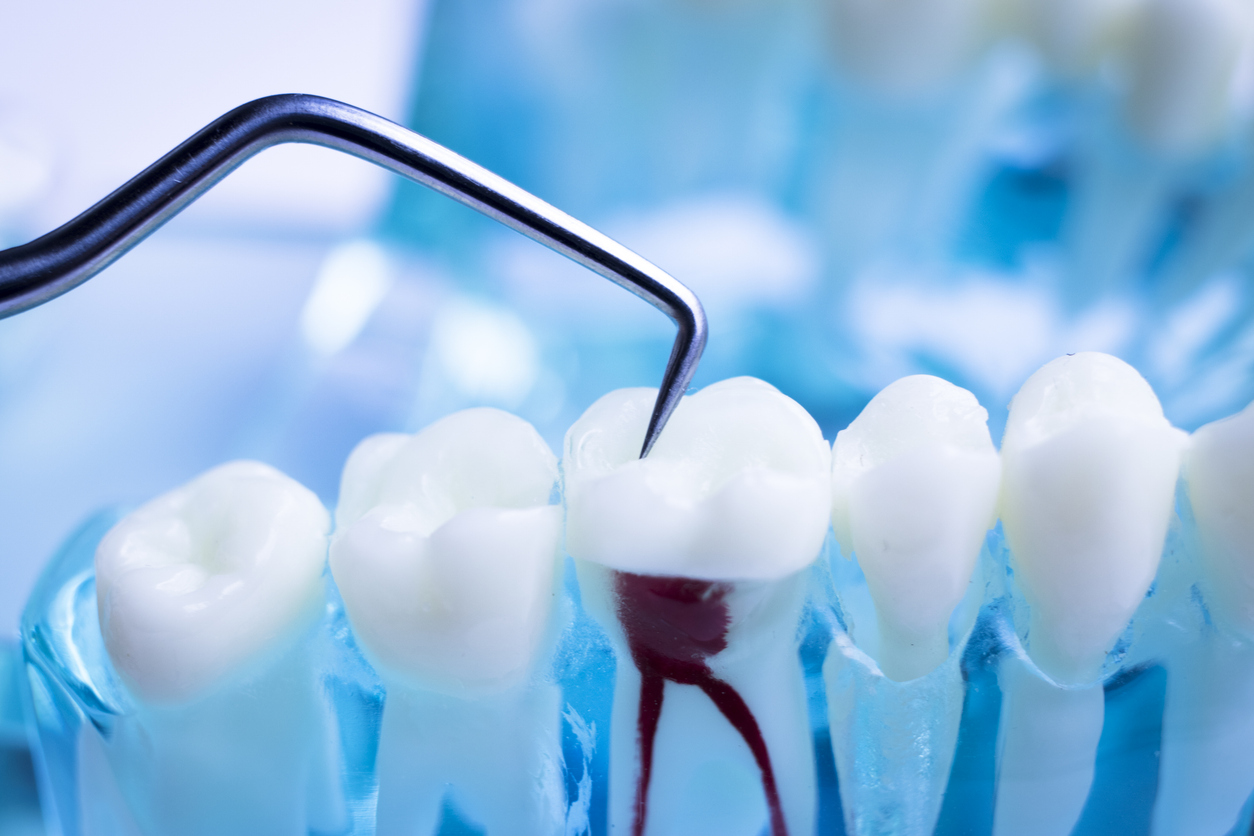What is a root canal?
A root canal, often feared but actually a very common dental procedure, is a treatment designed to save a tooth that has become infected or damaged. If you have dental pain or suspect you need root canal treatment, please don’t suffer in silence and contact our friendly dental practice in Kidlington without delay. When the tooth’s pulp (the soft tissue inside the tooth) becomes inflamed or infected, it can cause severe pain. A root canal involves removing the infected pulp, cleaning the root canals, and sealing the tooth to prevent future infection.

Reassurances about getting root canal treatment
Many people dread the thought of a root canal, but according to the NHS, root canal treatment is usually successful with 9 out of 10 teeth surviving for up to 10 years. Modern dental techniques have made the root canal procedure much more comfortable than it used to be. Our dental practice near Oxford serves patients in Kidlington, North Oxford, and Summertown. Our experienced dentists use advanced technology and anaesthesia to ensure a painless and stress-free experience.
- Pain management: We will administer local anaesthesia (if required) to numb the area around the affected tooth, making the procedure virtually painless.
- Sedation options: For patients who experience anxiety or fear of dental procedures, we offer sedation options to help you relax during your appointment.
- Comfort and care: Our friendly and compassionate staff will be there to provide you with comfort and support throughout the entire process.

What is involved in having a root canal?
Root canal therapy may require a few appointments, the number depends on the tooth that’s being treated. Between appointments, the tooth will be covered and temporarily restored. A root canal typically involves the following steps:
- Examination and diagnosis: We will examine your tooth to determine the extent of the damage and the need for a root canal. We may take X-rays.
- Local anaesthesia: A local anaesthetic can be administered to numb the area around the affected tooth and root canals are flushed with an anti-bacterial solution.
- Pulp removal: The infected or damaged pulp will be carefully removed from the root canals.
- Cleaning and shaping: The root canals will be cleaned and shaped to remove any remaining bacteria or debris.
- Filling and sealing: The freshly cleaned root canals are then filled with a rubber compound to seal the tooth and prevent bacteria from entering to prevent future infection.
- Dental crown: In most cases, a dental crown will be placed over the treated tooth to restore its strength and function.

Dr. Amit Mohindra, your sedation specialist
At The White Bridge Clinic, we understand that dental procedures can sometimes cause anxiety. That’s why we offer sedation dentistry, expertly administered by our principal dentist, Dr. Amit Mohindra.
Dr. Mohindra has a deep passion for sedation dentistry and has been providing this specialised care since completing his training in Newcastle from 2002 to 2004. He remains at the forefront of sedation techniques through ongoing training at reputable institutions like the Yorkshire Sedation Clinic and the UK Sedation Clinic.
Dr. Mohindra is dedicated to ensuring that your dental experience is as comfortable and stress-free as possible. If you’re feeling nervous about your appointment, intravenous sedation can help you relax and feel at ease throughout the procedure.

Aftercare for a root canal
Following a root canal, it’s important to follow your dentist’s aftercare instructions to ensure a successful recovery. This may include:
- Taking any prescribed medications as directed.
- Avoiding hot or cold foods and beverages.
- Chewing on the opposite side of your mouth.
- Maintaining good oral hygiene, including brushing, flossing, and using a mouthwash.
- Scheduling follow-up appointments with your dentist to monitor the healing process.
Benefits of having root canal therapy
Root canal therapy offers several significant benefits, including:
- Saving a tooth: By treating the infection and preventing further damage, a root canal can save a tooth that would otherwise need to be extracted.
- Removes infection: it removes a source of infection that could spread to other areas.
- Pain relief: A root canal can relieve severe tooth pain and discomfort.
- Improved function: A treated tooth can continue to function normally and help you chew and speak properly.
- Prevents future problems: Reduces further problems that could be caused by losing a tooth.
- Cost-effective: Less expensive than replacing a lost tooth.
- Enhanced aesthetics: A dental crown can restore the appearance of a damaged tooth, improving your smile.

Choose The White Bridge Clinic for your root canal needs
If you’re experiencing tooth pain or have been told you need a root canal, don’t hesitate to contact our dentist in Oxford. Our experienced dentists are committed to providing you with the highest quality dental care in a comfortable and welcoming environment. We offer a range of dental services, including root canals, dental crowns, and more.








